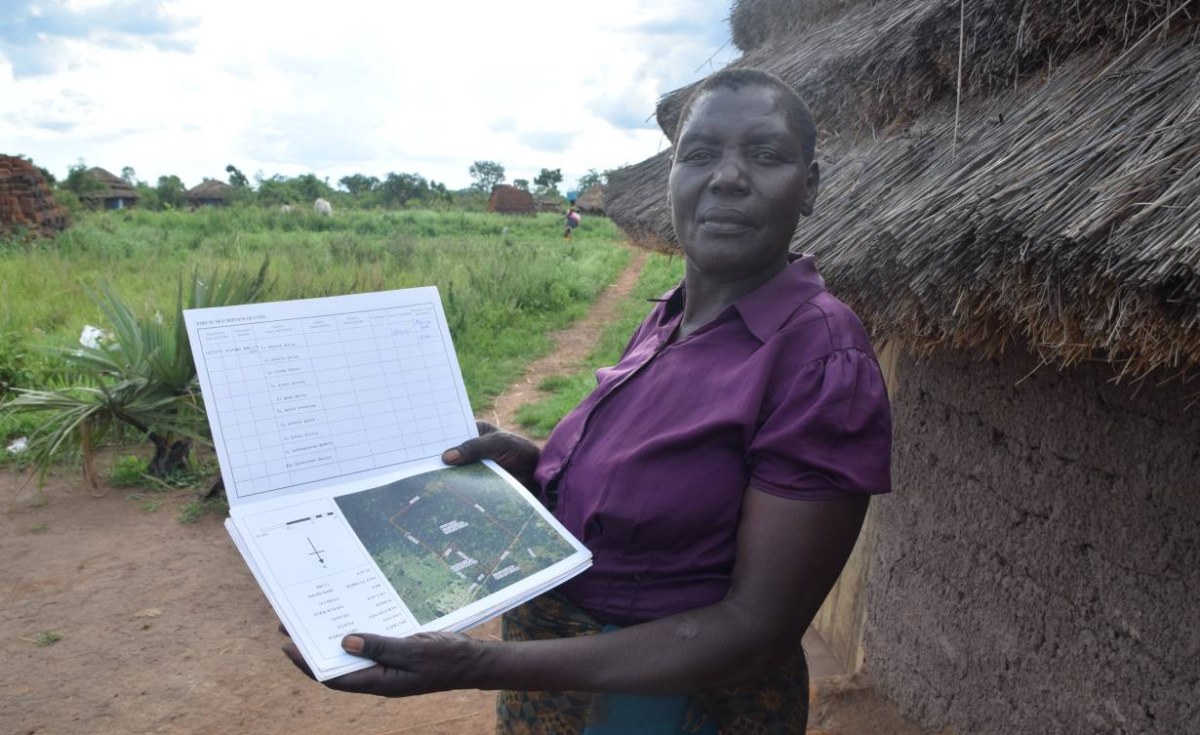UGANDA, Owele | Real Muloodi News | According to Reuters, residents of northern Uganda showed concern that the government would seize their land when they learned about a plan to document it. However, the government later offered something they had never had before: pieces of paper certifying the land they lived on was theirs, after photographing the site and capturing coordinates.
Since 2015, the government has granted approximately 25,000 Certificates of Customary Ownership (CCOs), which provide customary landholders with documentary proof of their tenure, to eliminate land conflicts and enhance rural families’ financial security.
Prior to this, the land in Owele, in Pader District, had no formal land titles. Instead, clans, family, and tradition governed the vast grasslands of Owele.
Santa Otyeka, aged 73 and the parish head in Owele, said that after her husband died, her new property ownership documents prevented her brothers-in-law from stealing her land.
“You, as an individual, are now in possession of your land,” she said, clutching a small folder with a map of her plot. “There is nobody who can trespass,” Santa tells Reuters.
According to Santa, her certificate has earned her community respect. She said:
“In the past, they would say women have no rights. Now, “the land of my grandparents has all been written in my name.”
However, cultural leaders say the government’s efforts to document customary land collide with traditional views of what property is and who gets to define it.
According to Ambrose Olaa, Prime Minister of Ker Kwaro Acholi, the concept of “ownership” misrepresents the way we hold customary land in trust for past, present and future generations. The relationship with the land shifts from holding an intrinsic value to having more material and commercial value, he told Reuters.
Father Joseph Okumu, a Catholic priest who leads a land committee for the Joint Acholi Sub-Region Leaders Forum, is doubtful. “Who certifies ownership?” he asked. “I thought my great-grandfather would certify that ‘this is your land,” he said. “Instead, the government is coming to say ‘I give you a certificate.”
Acholi women traditionally bury the umbilical cord in the centre of the homestead after childbirth, he said. “We consider land as a mother. Therefore, leasing land, where you bring in money, it’s like selling your mother,” Okumu narrates to Reuters.
Traditionalists like Okumu, however, are losing the battle against individuals who perceive land as a valuable asset.
Judy Adoko, a land rights activist in the Lango sub-region, showed concern, saying, “The state system and the customary system are very different. It’s like trying to change a mango into an orange,” Judy Adoko tells Reuters.
Adoko worries that documentation will cause customary land to be individualised, converted to freehold and sold off.
Dennis Obbo, the land ministry spokesperson, described that critique as “diversionary” and said they do not force anybody to get a Certificate of Customary Ownership.
According to Obbo and Jimmy Ochom, the Ugandan land rights coordinator for the charity Oxfam, certificates will allow people to use their land as collateral for bank loans and help women protect their inherited land from being stolen by people outside their community. It may also make it possible for people to receive fair compensation if the government acquires their land for factories, commercial farming, or infrastructure projects.
READ MORE LIKE THIS:



